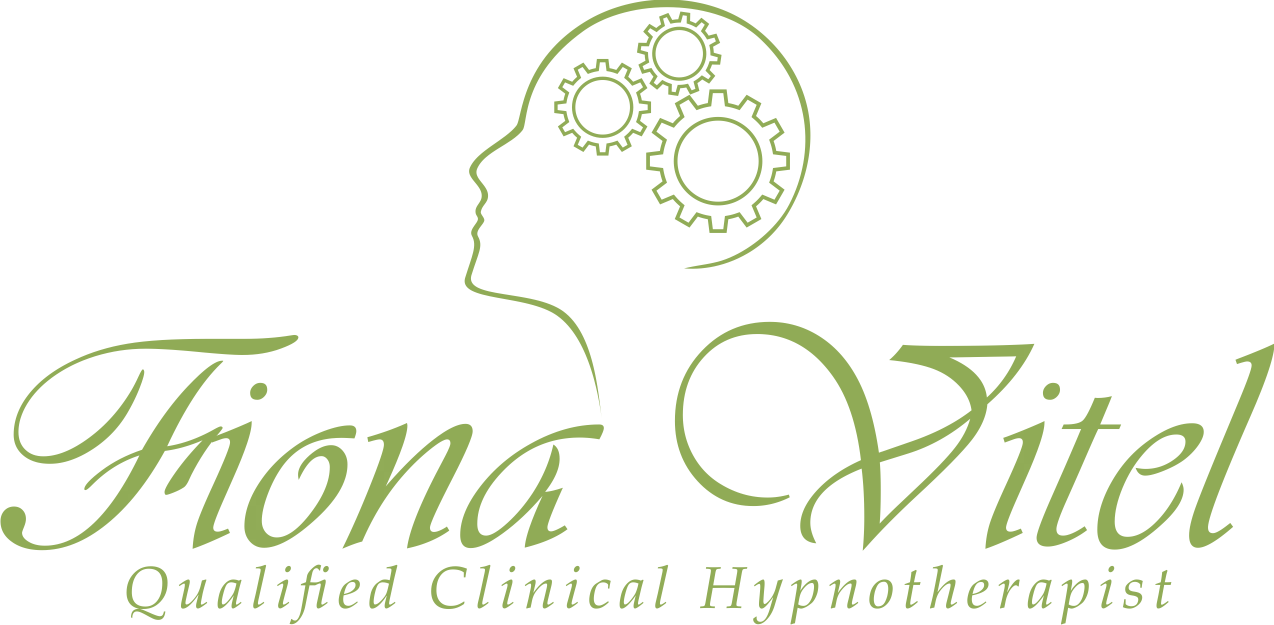So what do you do if someone you know or care about experiences a medical emergency or if someone collapses in a meeting or public area, or if there’s a road accident?
Or even a minor accident at home, like a cut or bruise or broken bone.
Or an elderly person or someone diagnosed with a serious disease.
Or someone who is having a panic attack or suffering from depression.
Whatever the scenario, that person will need support!
“There are words and ways to say them that can mean the difference between panic and calm, pain and comfort, even life and death.” These are the words of Judith Simon Prager, co-author of ‘The Worst Is Over’.
We see in the movies and on TV, scenes where characters are bent over the victim saying lines like ‘Don’t die on me, Johnny’ or someone might let loose and start screaming, ‘Oh my God, I think he’s dead!’ Well, that’s all very dramatic but in real life it’s not really helpful!
There are words and there are ways of saying them that are helpful in turning a medical situation into having a more positive affect; words that can positively affect heart rate and in fact all of the systems of the body.
Specific words that are so powerful that in certain circumstances just saying something like ‘Stop bleeding and save your blood!’ can help an accident victim do exactly that.
How to align yourself with the rhythms of a person in crisis, and lead them to a place of emotional calm

Gaining Rapport – Rapport means I hear you. I know what you’re feeling. I am here for you.
The right words can calm a person having a panic attack or help a chronically ill person to get some deep sleep.
Panic Attacks: Sudden overwhelming fears, rapid pulse, palpitations, nausea, tremors, sweating, cannot catch their breath.
Your calming presence is needed. Usually the suffering person feels alone and misunderstood. So it’s important to be fully present and caring.
But what can you say to a person who is in the middle of a panic attack?
You can establish empathy by using pacing. Pacing is when you join with the person by reflecting their thoughts, feelings and behaviours either verbally or non-verbally with the goal of moving them toward a more comfortable position using statements like:
‘I can see it’s hard for you to get comfortable.’
‘I know you’re scared.’
By getting the person’s full attention and co-operation, you can pace with their breathing to bring the rate down back to normal breathing. Getting breath regulated is the key to ending the attack because it’s hyperventilation that spirals the feeling of being out of control.
A person who suffers from anxiety can feel helpless and alienated. Words like ‘Cheer up!’ or ‘Get over it!’ are not only ineffective but serve as proof that no one could possibly understand.
Besides, it’s not always an emotional or mental issue – it could well be that there are fluctuations in blood sugar or an imbalance of oxygen and carbon dioxide in the blood stream. These can cause emotional responses such as panic or sever anxiety. Self-destructive, erratic or even dangerous behaviours can be the result of some neurological or physiological anomalies so it’s best to seek medical and psychological help as soon as possible.
Not knowing what to say in an emergency or to someone suffering can also have a serious affect. The wrong words can make a problem worse, despite all best intentions. It’s important that a helper is not dramatic and panicking, leaking out words and emotions that are all but helpful in the situation. These kinds of words and emotions can terrify, frighten or worry the victim. Long after the incident, the person can keep the wound alive and festering emotionally for years!
You know, this is where my work as a Clinical Hypnotherapist aligns with what I am talking about here. After discussing a health issue with a client and the client relaxes in the comfy recliner enjoying a deep sense of relaxation or trance state, I apply powerfully positive suggestion therapy. The subconscious mind takes everything literally, as fact, so positive, healing statements directly filter through to the autonomic nervous system. With suggestion, the client can clear any cellular memory around an old wound or body part.
It’s not unusual for people to be free of pain after doing this!
So it’s all about creating a calm centre by making the person comfortable – whether conscious or unconscious.
It’s important to know that the subconscious mind is like a 24/7 recorder even when unconscious – whether the person is asleep, in a coma, under general anaesthesia or in hypnosis.
If you tend to be a nervous wreck with a tendency for high drama, then it is best you learn firstly, to calm yourself by taking deep, slow breaths and centring yourself before approaching someone in crisis. Your instability is not helpful in an emergency so it’s very important to learn how to manage yourself in a difficult situation.
There are professionals, in the USA and other countries, trained to deal with the initial trauma, i.e. paramedics, ambulance men, nurses, police officers, fire-fighters etc and they use this kind of approach when managing a medical emergency. But not all medical/rescue personnel know how to speak to a victim, they just get on with the job of applying life-saving medical procedures. Yet, words spoken have a dramatic affect and it’s something all of us can do to help.
Any clinical/medical/hospital decision-makers out there should look into the benefits of training up staff in the ways of Verbal First Aid. Judith Simon Prager, author of The Worst Is Over, is available for training programs. Contact me for her details.
Studies in the States have shown that people who have received positive reinforcement and arrive in the emergency room are in a significantly better than expected condition. Why? Because when a person is in an accident they naturally enter into an altered state of consciousness, which means they are open to suggestion which affects the autonomic nervous system.
University of Kansas professor M. Eric Wright discovered verbal first aid in 1990, when he experimented with two groups of emergency medical technicians. The control group was told to continue normal emergency response procedure, but the other group was given a set of parameters to follow:
- Minimize extraneous input, such as witnesses’ reactions.
- Say a specific paragraph that includes: “The worst is over…[Tell your body to preserve itself. Encourage healing and limited blood loss]… You’re in a safe position. The worst is over.”
- Don’t talk too much about anything else.
After six months of following these parameters, the trained group’s patients were admitted to the hospital from the emergency room less often, stayed a shorter time in the hospital and experienced a much lower mortality rate. In fact, the results were so positive that the control group repeatedly asked Professor Wright for training so that they could help their patients better.
Even when a person receives a frightening diagnosis, it’s the same for them – all they can hear in their heads is that they are going to die. So what is going on with that person is not unlike the person lying on the ground bleeding. People in crisis need something to hang on to. So when you speak with authority, your words and your presence can help break the spell of negative thoughts that the person is experiencing and bring them into a much calmer place.
Verbal First Aid does not replace medical help on which we all rely but it does give the person at the scene, or someone who is standing helplessly at the bedside, a valuable gift to speak the magic of healing words.
Some of you might be becoming, only now, aware of the power of words and thoughts on the outcome of events. Every interaction is an opportunity for emotional and physical healing. It becomes a holy experience in so many ways.
Standard first aid practices still apply and you can learn them from many sources that are on the market e.g. restore breathing, control bleeding and help the victim to keep warm. There are loads of warnings too that apply like not moving the victim, not removing a foreign object deeply embedded in a wound. It’s important not to play doctor or therapist unless you are one. Verbal help is about using language to help the body initiate its own inner healing.
Some important points to remember:
- Being centred and calm, projecting confidence is very important
- Maintain composure
- Compassionate yet firm authority creates compliance to your suggestions and requests
- Gain rapport – build trust – using the right words and pacing can connect you with the victim’s own healing and belief systems
- What you say is as important as what you do
- Manage your own stress by deep breathing
- Avoid words like ‘pain’, instead ask what needs ‘attention’
- You can tell positive healing stories while waiting for assistance
Say I sit down with you and I tell you about my holiday in Australia. I describe to you how it is in out in the open with endless gum trees and off in the distance are mountain ranges and to get there we have to take a jeep and we get tossed about over the hard, dusty and bumpy terrain and we have to cling on tight, getting a bit bruised and jolted about. I feel exhilarated but a bit frightened about driving in amongst kangaroos and other wildlife. You are listening to the story and experiencing it in a secondary way but nonetheless the images and emotions are strong for you. That’s because of the power of suggestion. Every conversation is based on the power of suggestion. I tell you about my journey so that you can experience it with me. I share my joys and sorrows with you so you can feel what I feel.
What I say changes how you feel. What you say changes how I feel. It is the purpose of language, is it not? To convey with words a feeling, a point of view, a change of perspective.
And just as words can take you around the world to the Australian outback or into the natural beauty of Gloucestershire countryside for enjoyment, words can bring you pain.
Words Help, Words Harm

Harsh words can be like a “knife through the heart,” a frightening word, a “kick in the gut,” and a kind word, a “feeling of warmth in your being.” As adults we have been conditioned to deny and modify the way our bodies respond. Children have not yet acquired those defences and the effects of our words are readily apparent in their faces and their postures.
Stress, which many experts now define as the effect of any strong emotion (fear, anger, pain, sadness), has very clear physiological effects on our bodies. Our emotional and mental states affect our neuro-endocrine systems, our immune systems, even our reproductive systems.
Alice Domar, Ph.D., a researcher at Harvard Medical School recently conducted a study that showed the positive effects of stress-reduction on women who were trying to get pregnant. She contended that psychological distress can have effects on multiple systems: inhibition of hypothalamic GnRH, activation of the hypothalamic-pituitary-adrenal axis, and alterations of the immune system. Adrenaline is a by-product of many forms of stress. And while adrenaline helps us to prepare for emergency action, the chemical cascade it initiates inhibits our ability to repair ourselves, to digest food properly, or to reproduce. Epinephrine (one of the secretions of the adrenal glands) has been shown to constrict blood vessels. When this occurs in the uterus, it interferes with conception.
Domar also took a long, hard look at a 10-week mind/body workshop she created that included relaxation, yoga, imagery and cognitive restructuring. By changing the negative thoughts (“I’ll never have a baby”) to positive thoughts (“I’m doing everything I can to get pregnant”), they were able to change the body’s response. The data speak for themselves: Fifty-five percent of the women in the experimental group (those who used relaxation, yoga, imagery, and cognitive restructuring) got pregnant, in contrast with only twenty percent of women in a control group.
What we say to ourselves is as important as what we say to others. Equally important is how we say it.
Altered States-Portals to the Healing Zone
When we are frightened, shocked, confused, hurt, worried, wounded, we go into what clinicians call “altered states” in which we “dissociate” slightly (or in some cases, a great deal) from our environments. In these moments, we are highly focused, most often on some internal process, which changes the way we see ourselves and the world. It may not last longer than a few moments. It may last years. Some studies have suggested that symptoms of dissociation have been found in up to 96% of those who were exposed to high levels of stress. (1) Other studies have suggested that even those witnessing a traumatic event showed marked alterations in consciousness. (2) We have found that people in those states-whether they occur when your boss walks into your office with an angry look on her face, or you’ve been in a car accident-are highly sensitive to what is being said to them and what is going on around them. When people are scared, we look for a benevolent authority to tell us what to do, how to find safety. It is instinctive to all social animals.
What we do and say in those moments is particularly important. Do we use those sensitive moments thoughtlessly, fanning the flames of anxiety or do we serve as a guiding light to lead someone to emotional and physical safety. With Verbal First Aid, the choice and the task are easy.
“The Worst Is Over”, Judith Acosta LCSW & Judith Simon Prager PhD. Available on Amazon.com or www.jodere.com
You can contact Fiona by email or phone, or go to her website to see how she can help you with your issues.


